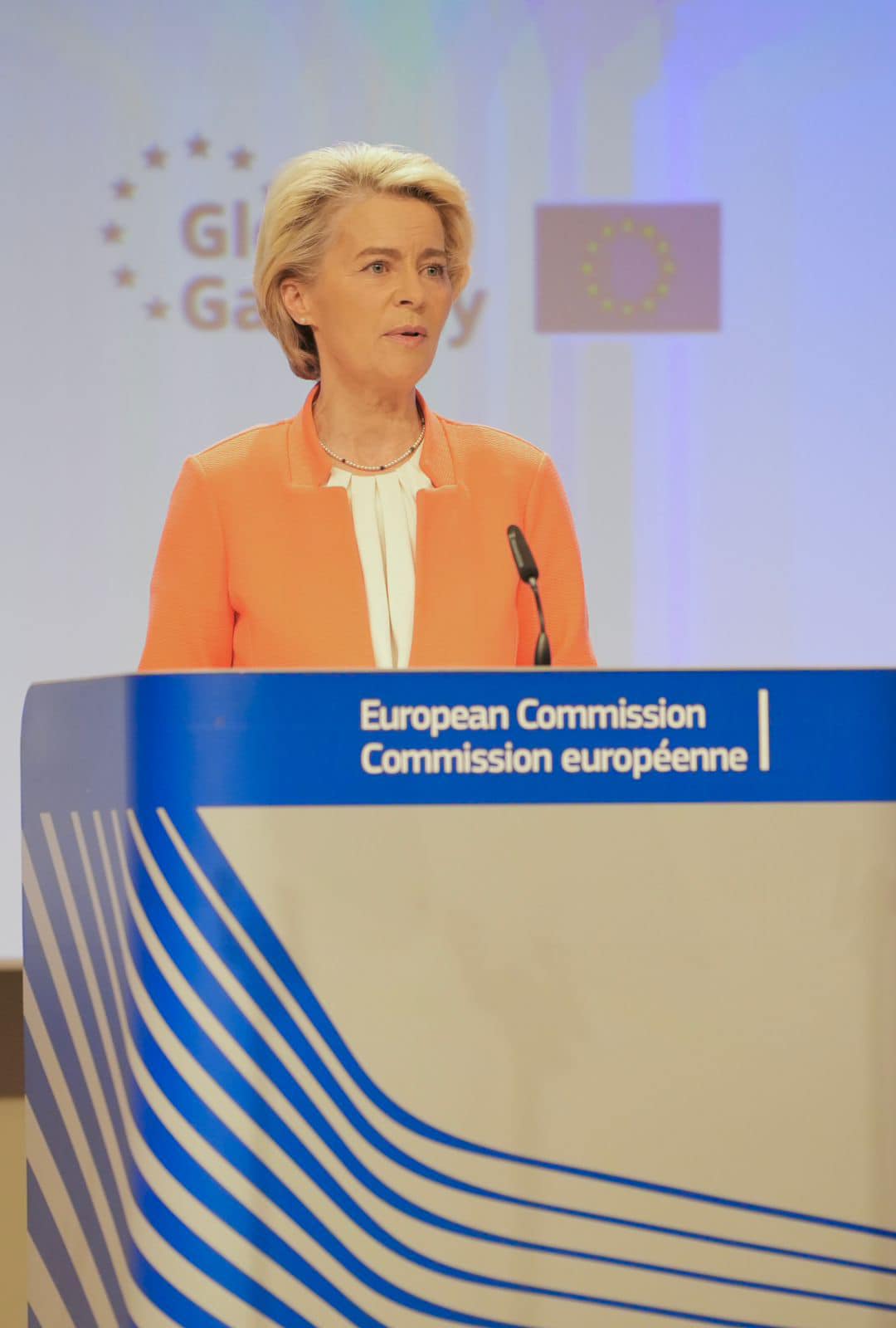BRUSSELS, (Reuters) – The European Union pledged more investment for Latin America and the Caribbean at a summit today as part of a revamp of its international relationships prompted by Russia’s war on Ukraine and growing wariness of China.
As over 50 leaders from the three regions gathered in Brussels for the two-day EU-CELAC (Community of Latin American and Caribbean States) summit, European Commission President Ursula von der Leyen told a business forum that Latin America, the Caribbean and Europe needed each other more than ever.
“The world we live in is more competitive and conflictual than ever before. Still reeling from the heavy toll of the COVID-19 pandemic, the world is taking a hard impact from the Russian aggression against Ukraine,” she said.
“And this happens against the backdrop of China’s growing assertiveness abroad,” she added.
She said the EU was planning 45 billion euros of investment in Latin America and the Caribbean as part of its Global Gateway scheme, widely seen as a rival to China’s Belt and Road programme of infrastructure investments.
But discussions over the summit communique highlighted differences over how to address the war in Ukraine and Europe’s role in the slave trade.
The EU has said it wants a joint declaration condemning Russia, but knows this will be difficult to achieve. While most CELAC countries backed a UN resolution in February demanding an immediate Russian troop withdrawal, Nicaragua voted against and Bolivia, Cuba and El Salvador abstained.
Brazilian President Luiz Inacio Lula da Silva has pitched himself as neutral and a potential peace broker.
Lula did not repeat his previous criticism of the West for providing arms to Ukraine but said the war was diverting resources from key priorities elsewhere.
“The war in the heart of Europe throws a blanket of uncertainty over the world and channels resources that were essential for the economy and social programs to war purposes,” he said.
“The race for weapons makes tackling climate change even more difficult.”
REPLACING RUSSIA
The EU is looking to forge new energy partnerships after severing ties with Russia, which was the bloc’s biggest supplier of gas before the invasion of Ukraine in February last year.
It also wants to reduce its reliance on China and build new alliances to secure minerals critical for electric vehicles and the broader transition to a low carbon economy, a supply chain China dominates.
The EU has acknowledged it has sometimes neglected its Latin American partners as China’s role in the region has risen. But it is now eager to re-engage.
All 60 leaders from the two blocs’ member countries were invited to the summit, but the presidents of El Salvador, Mexico, Peru and Venezuela are among those not expected to attend.
Although keen for EU investment, CELAC partners generally want the economic benefits of processing and producing lithium batteries or electric vehicles, rather than the smaller returns of shipping minerals to be processed elsewhere.
The EU is pressing ahead with a trade agreement with Chile, the world’s largest copper producer and second largest lithium producer, and officials have said it could enter force next year.
It is also seeking to unlock trade deals struck with Mexico in 2018 and with the Mercosur bloc of Argentina, Brazil, Paraguay and Uruguay in 2019, though officials have played down expectations of any breakthroughs during the summit.

